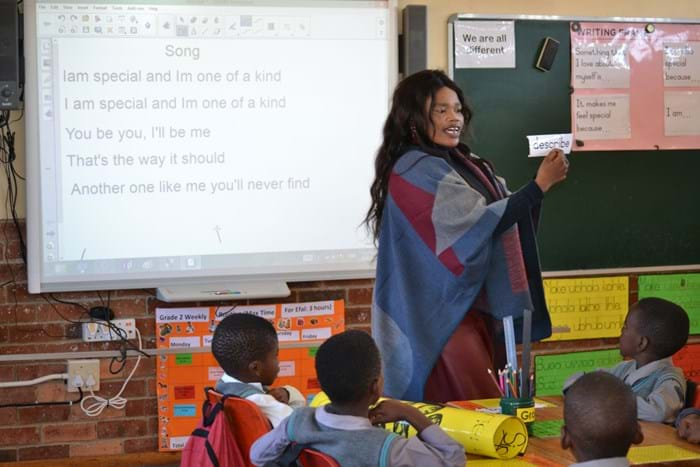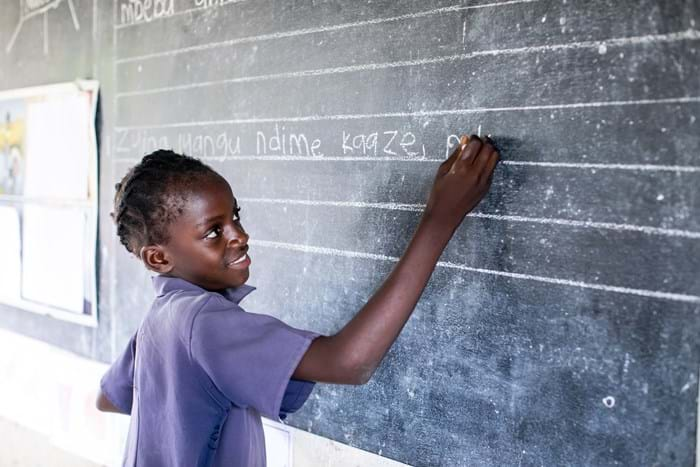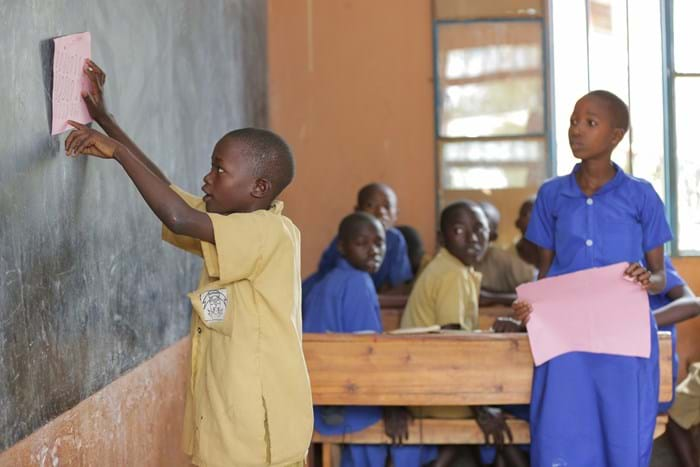- 00%
of grade 4 learners in primary school are not able to read comprehensively
- 00%
of children complete their final year of secondary school
Where
Pretoria, South AfricaFocus area
EducationDuration
2019 - 2024Economy
The Hempel Foundation: DKK 15 millionUNICEF Denmark: DKK 7.5 million
The project
Teaching practices will be improved through:
- the provision of a structured lesson plan
- the provision of Learning and Teaching Support Material,
- providing upfront centralised training to teachers
- providing on-going support, which will be varied in the interventions i.e. providing a higher dosage of on-site coaching to teachers and using an on-site coach to initiate a Community of Practice, in which the coach eventually takes on the role of a virtual coach to support the Community Of Practice
Previous interventions have shown that the largest impact for children was observed when the form of professional support to teachers included on-site coaching.
Coaching is not intended to be universal in its application; rather it is intended to be provided to a cohort of the most disadvantaged schools, where performance is lowest. Nevertheless, as part of a sustainability plan and with the intent of scaling the overall approach nationally, it is necessary to identify the most cost-effective solution to on-site coaching.
That is why the approach will include documenting and comparing the effect of different dosage of on-site coaching.


